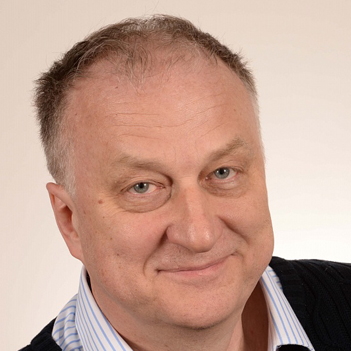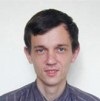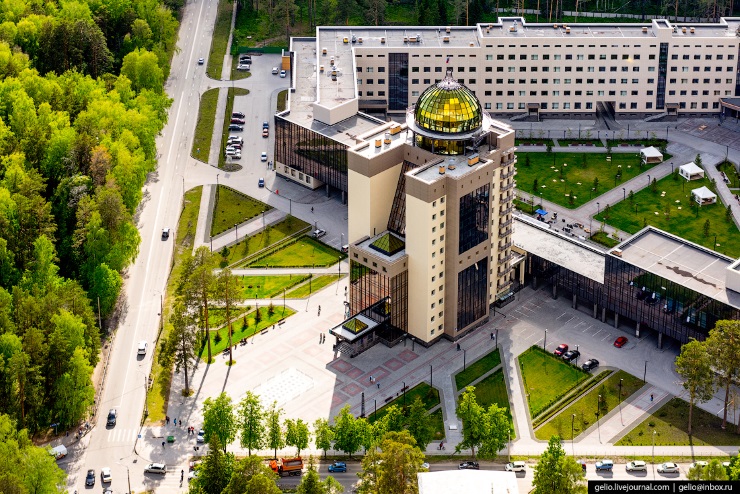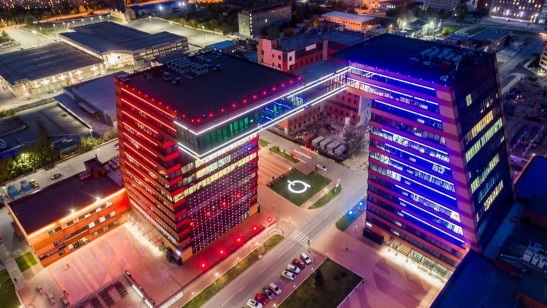Idea: to represent research in various scientific domains using A.I. engineering or A.I.-enabled method.
Features: research which can be reproduced by reviewing process will be featured.
The first day recording: https://youtu.be/kssTXGWp2KA
The second day recording: https://youtu.be/z3_pKahV0J8
* - the only university surrounded by 37 interdisciplinary scientific institutions - Akademgorodok
* Deadline for reproducible paper: 14-Oct-2020
* Deadline for regular paper: 31-Oct-2020
* Notification of acceptance: 7-Nov-2020
* 14-15 November 2020
Recent progress in RANS-models development showed good ML-trained performance for turbulence.
All supervised ML-tasks are actually inverse tasks. Regularization, Reproducing Kernels - are one of terms used both in ML-theory and in the theory of ill-posed and inverse problems. The time to meet this two scientific directions has come.
Computer Vision and A.I.-enabled method provide a new powerful tool to resolve regular thermophysics tasks, such as flame characteristic recognition, gas conditioning, etc. Also it made us capable to count nanoparticles, moleculas automatically. Moreover it brings us a new tool to predict properties of a substance by new quantum deep neural network models.
Natural Language is a big field to A.I.-method application. We know a lot advances in NLP by Depp Learning, as Word2Vec, BERT, ERNIE. Possibly it's time to combine all modalities to approach to zero-shot learning and multi-modal compehension.
Muons are already modeled by GANs, speeding up the muon generaiton times 1M. What are the next directions in ML application in High Energy Physics?
One of the most promisable ML-technique in Physics is RL, just because it's interactive. Some scientific equipment requires high expertise to adjust, would it be possible to apply Reinforcement models here?
Healthcare is one of the demanding area of A.I. Paients are waiting for a big advance in treatment supported by knowledged Artificial Intelligence. What the ML-experts can suggest in diagnosis, radiology and health decision making?
Idea: to represent research in various scientific domains using A.I. engineering or A.I.-enabled method.
Features: research which can be reproduced by reviewing process will be featured. For that please provide an access to the data used in the research.
Papers with reproduced results will be featured. To make it reproducible you need to share the code and dataset with the Committee
Master and PhD students presenting their research and developments
What is State-of-The-Art in NLP, CV, RL, and Quantum Machine Learning? You also may propose your tutorial or workshop

PhD in Physics, Fellow of the Optical Society of America, Director of Aston Institute of Photonic Technologies.

PhD in Biology, Dr.Sci in Philosophy, Senior Researcher at Research Institute of Physiology.
All accepted and presented full papers will be submitted for inclusion in the IEEE Xplore Digital Library. IEEE has agreements with almost all of the top publishers, including Clarivate Analytics (formerly Thomson Reuters), Elsevier (Compendex, ScienceDirect, and Scopus), Google Scholar, ACM, IET etc.
All papers sent will be peer-reviewed.
Requirements: see file.
Now submission is closed.
Fee: $75 USD (5800 RUB), for IEEE Members a discount 20% apply.
Fee for students: $25 USD (1900 RUB).
Have questions?
If you decide to participate, please fill this form
Novosibirsk State University is located in the world-famous scientific center – Akademgorodok. 80% of NSU faculty members are scientists from the Siberian Branch of the Russian Academy of Sciences. So education is carried out in close connection with the world-class scientific achievements. Ranking specialists especially point out the unique R&D atmosphere of the Academgorodok center where Novosibirsk State University is located. Video

According to the QS experts, Novosibirsk State University is the 2nd best Top 10 Universities in Emerging Europe & Central Asia 2019. Compared to 2018, NSU improved its position in engineering and technical sciences, took 182 place and rose by 18 points. Novosibirsk State University has once again entered the group 51-100 in physics and astronomy, and this result supports the 68th place of NSU in the ranking of natural sciences. There is also stability in the areas of "Mathematics" and "Philosophy" – 3 consecutive years, the University is in the group 101-150 and 151-200, respectively. Read more about NSU rankings here.

Students can get a top education while not breaking the bank like many peers in Europe, Australasia, or North America. Even in the capital of Siberia, Novosibirsk, a meal and a drink in town costs just $5 or so and $2-3 in the student’s cafeteria, average monthly rent for a 45 metres squared property is around $270 and around $18 in a dormitory. Please read more about accomodation options and living costs here
Campus of Novosibirsk State University is surrounded by beautiful pine forest. "It’s like in the woods!" – that's what people say when they come to Akademgorodok for the first time. You can easily meet a hedgehog on your way to the university, or see the wild ducks living in the local pond; and the squirrels are so used to living next to people that they do not run away, and happily pose for Instagram. Let you not afraid of siberian winter.
The dormitory for international students are just few minutes walk from the university main building. There are comfortable double rooms equipped with everything you need including a spacious closet in a hallway, shelvel, tables, nightstands, comfortable be and your own shower. NSU Sports center is one of the largest in Novosibirsk. You can read more about campus here take a video-tour of Novosibirsk State University here.


Many foreigners associate Siberia with a very harsh climate. That is only partly true. The weather in Novosibirsk is not as extreme as it is usually expected. The city is located in Western Siberia which is characterized by a milder climate. The Altai Mountains in the South protect the region of Novosibirsk and creates a microclimate: winter is not as tough as in neighboring regions and the air is not too dry. Novosibirsk is sunny throughout the year and there are not many rainy days.
Winter is usually very sunny and fluffy snow is everywhere from December to March. Don’t forget to practice some winter sports! The average winter temperature is -15 ° C, and the coldest period lasts approximately 2-3 weeks in January and February, when the temperature drops to -30-35 ° C. However, because of the dry climate, it does not feel as cold x as it might seem and it is easy to protect yourself by wearing warm clothes.
Summer is usually hot in Novosibirsk. The average daily temperature in July, the warmest month, is +25 ° C, and there are sometimes hot periods up to + 30 /+ 35 ° C. Water in the rivers and in the artificial sea (the “Ob Sea”) gets warm so locals enjoy spending time at the beach and swimming.
Total of 100 large and 1700 medium and small hi-tech companies. Including headquarters or offices of

630090 Pirogova Street, 1
Novosibirsk, Russia
ai@nsu.ru
+7 913 911 7907
Telegram me: https://t.me/EuXsun